 Master of Business Administration (MBA) degrees are some of the most universally-accepted graduate degrees for management, analysis, and leadership positions.
Master of Business Administration (MBA) degrees are some of the most universally-accepted graduate degrees for management, analysis, and leadership positions.
While other business degrees may lead straight to a job in banking, or with an accounting firm, MBAs are employable in a huge number of settings. High finance, engineering firms, hospitals, religious organizations, universities, and start-ups all need talented MBAs.
If you’re looking into an online MBA, you likely have some idea of how valuable the degree can be. Perhaps your employer has asked you to pursue a higher degree, or you’re looking to change careers, or you have a friend who started a business after their MBA. These are all plausible steps. And in this guide we’re going to look at both a wide range of things you can do with an MBA, and why this is the case.
If you already know you want to pursue an online MBA, be sure to check out MBA Central’s MBA rankings at the bottom of this page.
If you’re still up-in-the-air about pursuing an MBA, be sure to check out some of our MBA FAQs, or continue working through this guide below.
MBA Central FAQs
- The Best States For MBA Graduates
- What Is A Dual MBA?
- Can You Get An MBA Without GMAT?
- What Is A Mini-MBA?
- The Fastest Growing MBA Careers
- The Highest Paying MBA Careers
- What Is An Executive MBA?
- What Is An Accelerated MBA?
- A Guide To MBA Program Accreditation
- What is a Supply Chain Management MBA?
- What is a Consulting MBA?
- What do Consultants Do?
- What can I Do With a Finance MBA?
- What Can I Do With an AgriBusiness MBA?
- What Can I Do with an Entrepreneurship MBA?
- What are the Differences Between an MBA and an Executive MBA?
- Career Prospects for Executive MBA Holders?
- Should I Get an Executive MBA?
- What Is A Part Time MBA?
What Types of MBAs Are There?
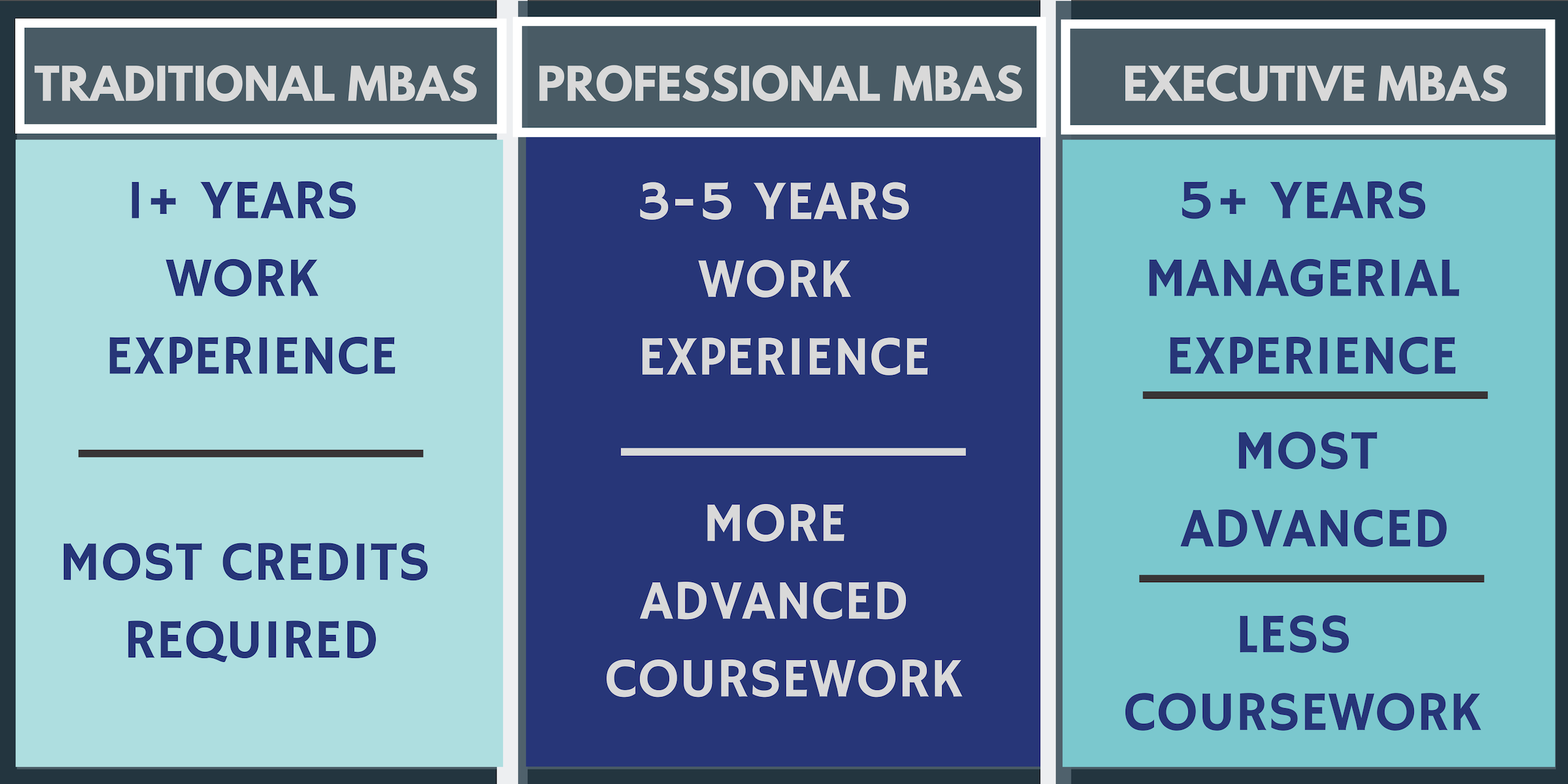
Before we jump into answering what you can do with an online MBA, we need to establish the fact that MBAs can vary quite a bit.
At a general level, there are three types of MBAs: traditional MBAs, professional MBAs, and executive MBAs. Each leads to roughly the same degree, but each varies regarding entry requirements and what are required to earn the degree.
- Traditional MBAs are open to those with bachelor’s degrees, one year or more of work experience, and who meet other admissions requirements. Traditional MBA applications generally weight undergraduate grades, extracurriculars, and standardized test scores heavily.
- Professional MBAs are open to those with bachelor’s degrees, who have worked in business for 3-5 years, and who meet other admissions requirements. Professional MBA applications generally take a holistic view of undergraduate grades, standardized test scores, and what the applicant has done in their work.
- Executive MBAs are open to those with bachelor’s degrees, who have worked in managerial roles for 5+ years, and who meet other admissions requirements. Executive MBA applicants are normally judged most heavily on their work experience, with many programs not requiring standardized testing.
As you can likely see in the bullets above, the three main types of MBAs are divided based on the experience-level of applicants. As professional and executive MBA candidates are required to have more experience before entering the program, they are generally required to take less foundational level coursework.
In executive MBA settings, there is generally more of a focus on high-level decision making, case studies, and advanced concepts of business administration. In traditional MBA settings, there is generally more of a focus on foundational graduate business coursework that leads to students being exposed to a variety of business disciplines at the graduate level.
Besides the three main types of MBAs, there are also many topical clusters or concentrations that students can choose to focus on in their MBA. We’ll go into what you can do with each of these concentrations a bit more below. But for now just know that there are a wide range of MBA concentrations including:
- Marketing
- Accounting
- Finance
- Corporate Social Responsibility
- Sustainability
- IT Management
- Social Media
- Non-Profit
- Consulting
- Logistics
- Operations Management
- Human Resources
- International Business
- Among Others
How Much Does an MBA Cost?
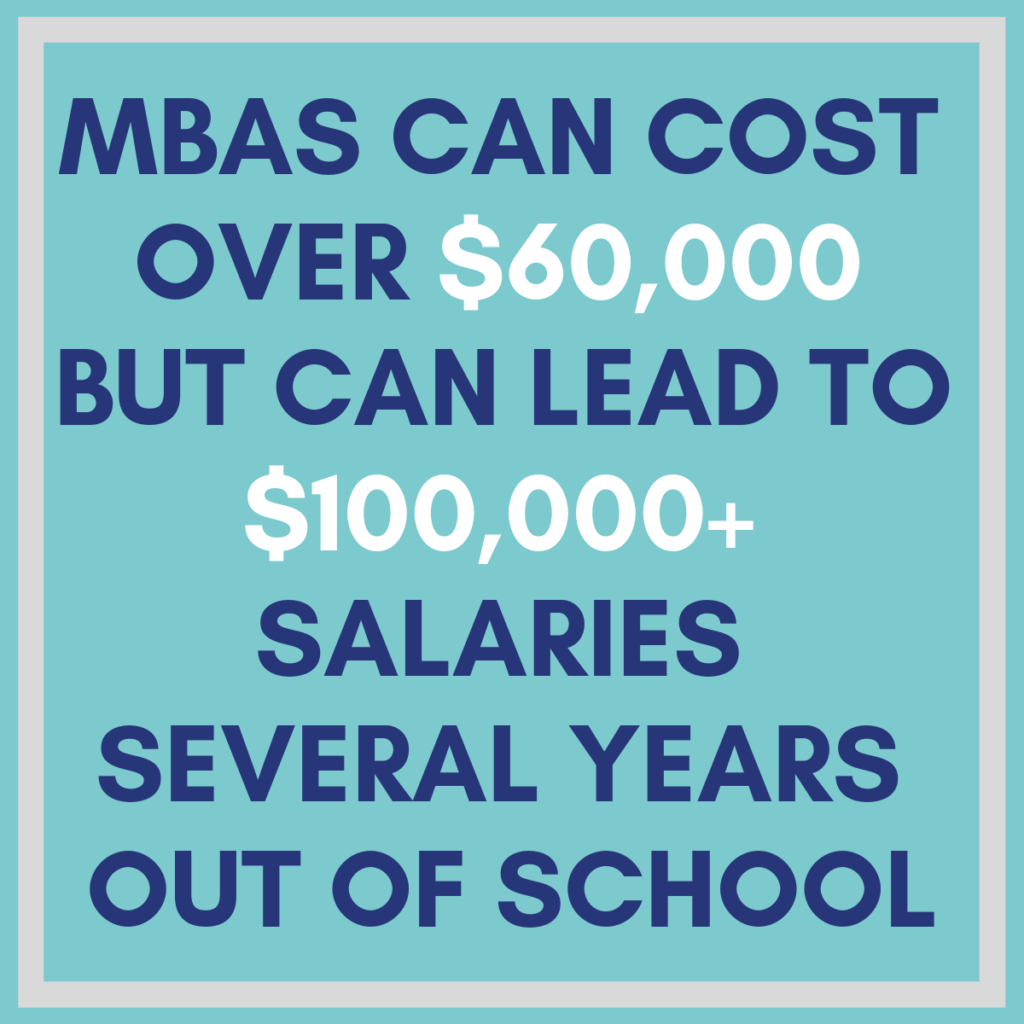
Gaining an MBA is a big investment. Most graduate degree programs cost more than undergraduate coursework. The average graduate also earns more upon graduation.
Much as other degree programs and school types vary in pricing, so too do MBA programs. Nationwide the average cost of an MBA is $60,000. From top-tier schools, it’s quite common for 2-year MBA programs to cost over $100,000.
With that said, MBA graduates earn a good bit more than bachelor’s degree holders. With one year of work experience, MBA graduates typically make over $50,000. By year 10 of a business career, most MBA graduates make over $100,000. With that said, there’s great variety in salary between MBA types. MBAs in strategy earn close to $100,000 their first year out of school, while human resource MBAs typically earn about half of that one year out of school. Finally, top-tier MBA programs routinely find graduates placed into positions making over $100,000 a year directly out of school.
Besides the boost in earnings, there are a number of other ways to offset the cost of MBAs. Employees with MBAs are valuable assets, and most employers know this. If you’re currently employed and thinking about seeking an MBA, ask your employer if they will help you pay for the course of study. Agreeing to stay at a job for a certain amount of time after graduation in exchange for your employer paying for your course of study is a common practice with MBAs.
Additionally, seeking an MBA online can save a good deal of money. The costs of an MBA listed above are average “total costs of attendance.” Total cost of attendance is not only tuition but fees for on-campus amenities, living expenses, food, and cost of commuting to school. In the case of online MBAs, most fees are waived, there’s no commuting to school, and most degree candidates continue living where they have (as well as working). This can greatly offset the cost of an MBA.
Why Get an MBA Online?
MBAs were some of the first degrees to become widely offered online. This is helpful because over time online MBAs have become widely excepted and even the most common path towards an MBA in business settings. As most MBA candidates are currently employed, online MBAs can offer a way to structure learning around work and life responsibilities.
Additional perks of attending an MBA online include:
- The ability to log into classes at any time (in asynchronous programs)
- Access to many online learning tools
- 24/7 access to tutoring and support services
- The ability to structure class around work and life obligations
- Lower cost due to lack of travel and fees
- A global community of like minded business leaders
- Greater ability to accelerate or slow down your course of study
- Earn the same degree as brick and mortar programs
While some students greatly prefer learning in-person, MBAs have long been built for working professionals. First catered to working professionals through night and weekend courses, as well as through correspondence (and even phone courses), online MBAs are now the norm for many students.
What Can I Do With an MBA?
As we’ve mentioned above, MBAs come in many formats. And while your choice of specialization will likely impact some of what you do once you graduate an MBA, just know that MBAs are commonly held by many leaders in the business world.
If you want to know what you can do with an MBA by example, below are a few particularly illustrious leaders that have MBAs:
- C. Douglas McMillon, CEO of Walmart
- John S. Watson, CEO of Chevron
- Tim Cook, CEO of Apple
- Mary T. Barra, CEO of General Motors
- Mark Fields, CEO of Ford Motor Company
- Randall L. Stephenson, CEO of AT&T
You likely get the point. Once you reach the upper echelons of business, more colleagues have an MBA than not.
Of course not every MBA graduate is going to proceed to run a Fortune 500 company. But there are plenty of rewarding, lucrative, and important careers short of that level of success.
Below we’ll look at some of the most common online MBA specializations, detailing what you’ll study if you pursue this concentration and what you can do with a concentration when you graduate.
Online Accounting MBAs

Accounting MBAs are one of the most popular MBA concentrations. Along with a broad group of general core courses, accounting MBAs typically require 3-6 courses chosen from the following:
- Forecasting
- Financial Analysis
- Budget Management
Like all MBAs, an accounting MBA can lead to a variety of management and leadership positions. For recent graduates, however, some of the following positions may be the most common:
- Trust Accountant
- Accountant
- Accounting Manager
- Audit Accountant
As you may know, many accounting opportunities require professional licensing. Exams like the certified public accountant (CPA) exam, can open many doors. What many potential accountant students don’t know, however, is that sitting for these exams often requires more credit hours of school than is available in an undergraduate degree. Sitting for a CPA exam doesn’t require a full master’s degree, but rather requires a handful of courses at the graduate level. An online MBA can help to satisfy prerequisites for sitting for a CPA exam.
Once you’ve obtained professional licensing in accounting, a wider range of potential job opportunities will be available to you. Those that work as trust accountants generally work with trust banks or law firms. They manage a portfolio of clients who hold trusts, helps to file tax returns, ensure tracking of finances, and ensure compliance.
General accountants have perhaps the widest range of employment settings. From payroll services to accounting firms, to insurance companies, accountants are responsible for providing analysis, advice on tax laws, and routine payment services.
The final large employment group related to accounting is in audit accounting. Audit accountants check annual earnings statements, financials, and tax documents for compliance. Audit accountants may work for the Federal government with the IRS, or in private enterprise.
Online Marketing MBAs
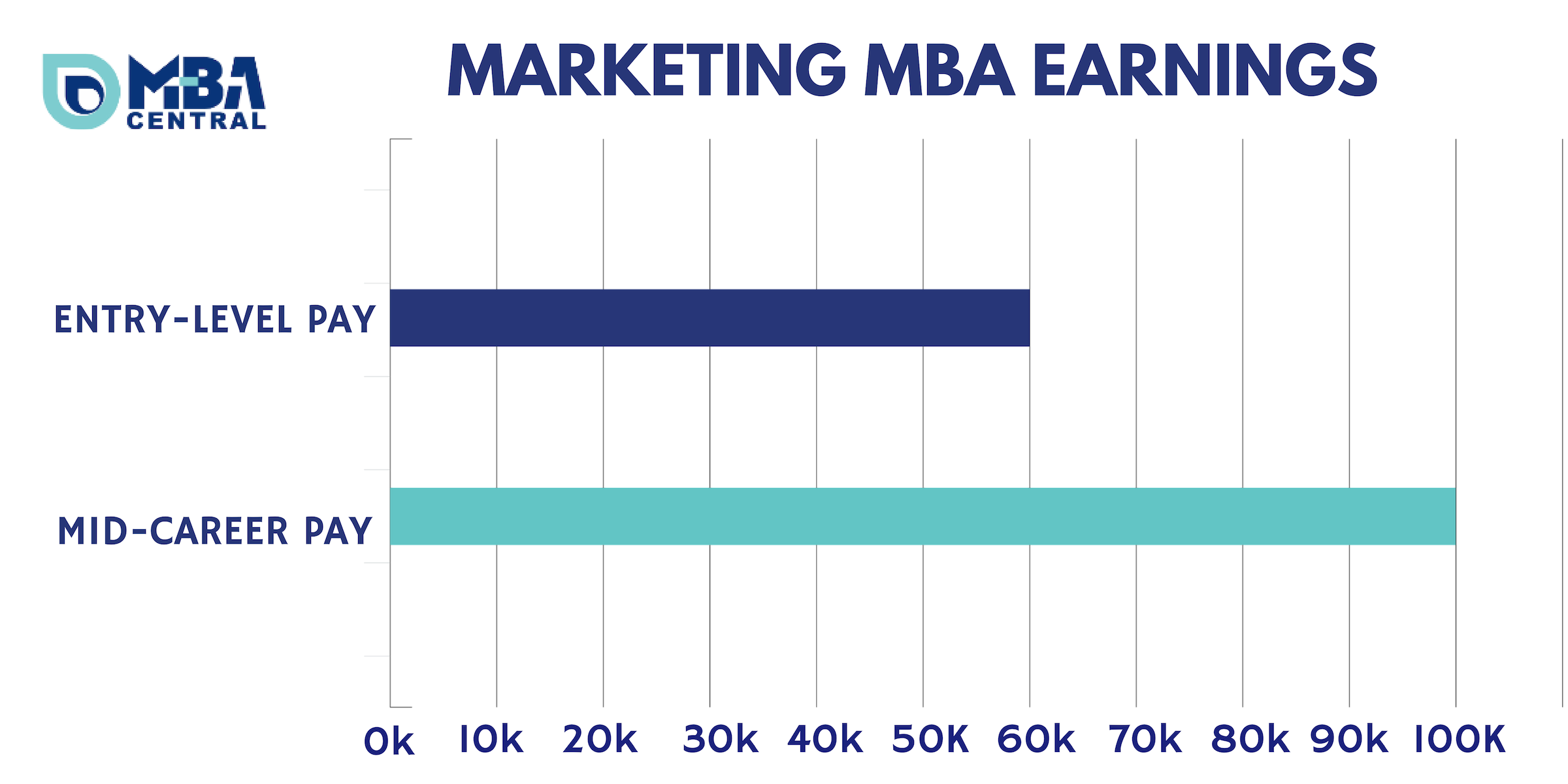
Marketing MBAs begin with a core selection of courses that cover accounting, finance, management, and other disciplines. Students will then proceed to focus on marketing courses — generally 3-6 — and in some programs a final project or practicum.
In most programs, a variety of marketing courses will be made available to those pursuing the concentration. Some will focus predominantly on digital marketing or social media. A common sampling of marketing courses available for marketing mba concentrations may include:
-
- New Product Development
- Marketing Analytics
- Marketing Planning
- Advertising and Promotions
- E-Marketing
Among Others
There are a wide range of marketing positions that online MBA recipients are likely eligible for. For companies with larger online presences positions in UI/UX, PPC marketing, SEO, and branding may be available. In more traditionally marketed corporations, positions in public relations and branding are likely available.
Some of the most common positions available to those with marketing MBAs include marketing managers, marketing event managers, brand managers, and marketing communications managers.
Online Finance MBAs
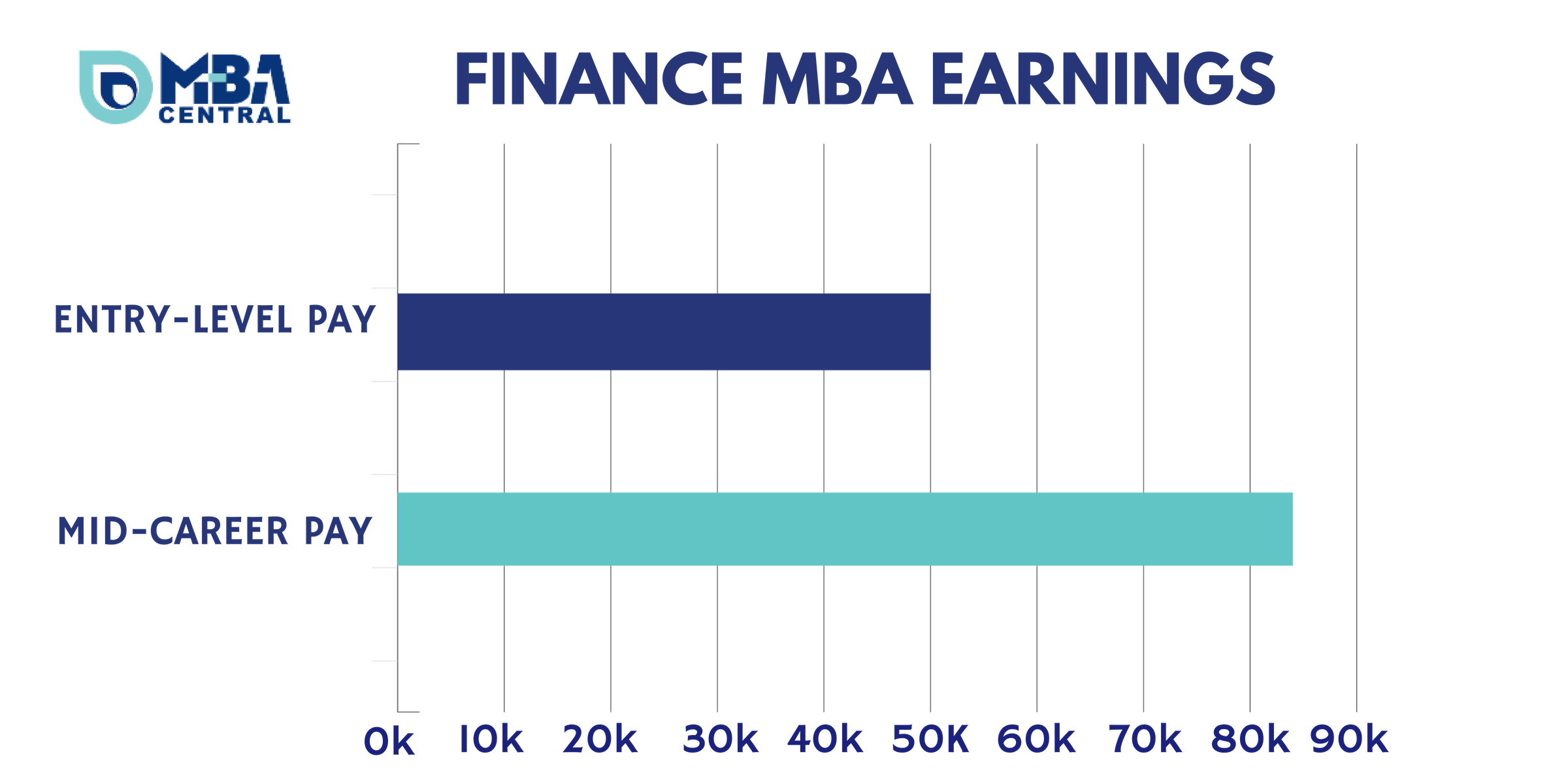
Finance MBAs can lead to particularly lucrative careers. Mid-career professionals with finance MBAs earn an average of $109,000 a year, with top financial managers, traders, and CFOs earning multiple times that rate.
After a general curriculum shared by all MBA concentrations, finance MBAs take a cluster of 3-6 courses that often include the following (depending on the program you’re in):
- Corporate Finance
- Financial Forecasting and Behavior Science
- Capital Markets and Investment Planning
Careers that can be pursued with a finance MBA are similar to those of an accounting MBA, with a few additional options. Financial controllers are some of the most common finance-centered positions in business. They take care of financial reporting, compliance, and management within a department of a corporation. Additionally, chief financial officers generally have advanced education in financially-related subject matter.
Think you might be interested in a finance MBA? Check our our ranking of the Best Online Finance MBAs today!
Online IT Management MBAs
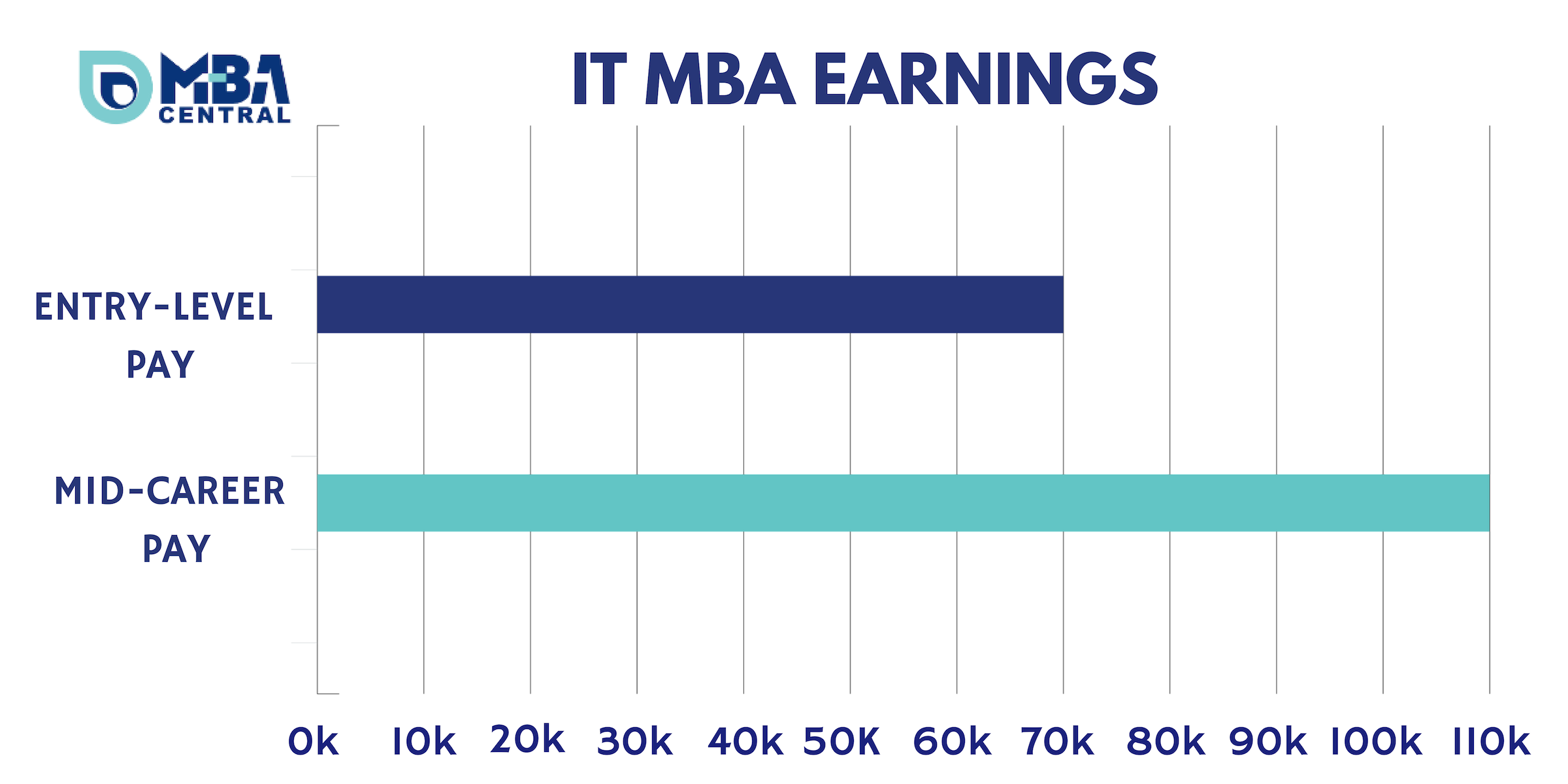
There’s more to computing products and services than technical solutions. Managers talented in software and design thinking are in high demand, leading to some of the most well-paid managerial positions available today.
Information technology management MBAs take the same general courses required of all MBA graduates, then proceed to specialize in IT management through 3-6 concentration courses. Concentration courses in information technology management often include the following:
- Agile Development Managmenet
- Software Architecture
- Data Analysis
- Among Others
Additionally, more and more online MBA programs are adding other IT-related specializations including information security and information systems.
Some of the most common jobs obtained by IT Management MBA graduates include the following:
- IT Project Managemer
- Scrum Master
- Chief Technology Officer
- IT Product Owner
- IT Business Relations Manager
MBAs in information technology are likely to find employment in a range of settings, from start up environments, to large engineering firms, to governmental agencies, hospitals, and school districts. Nearly every setting in which a product is built around information technology solutions or there is large IT infrastructure requires skilled managers that are knowledgeable about IT.
For more information about IT concentrations in MBAs, check out our IT MBA specialization page As well as our ranking of the Best Online Information Technology MBAs today!
Online International Business MBAs
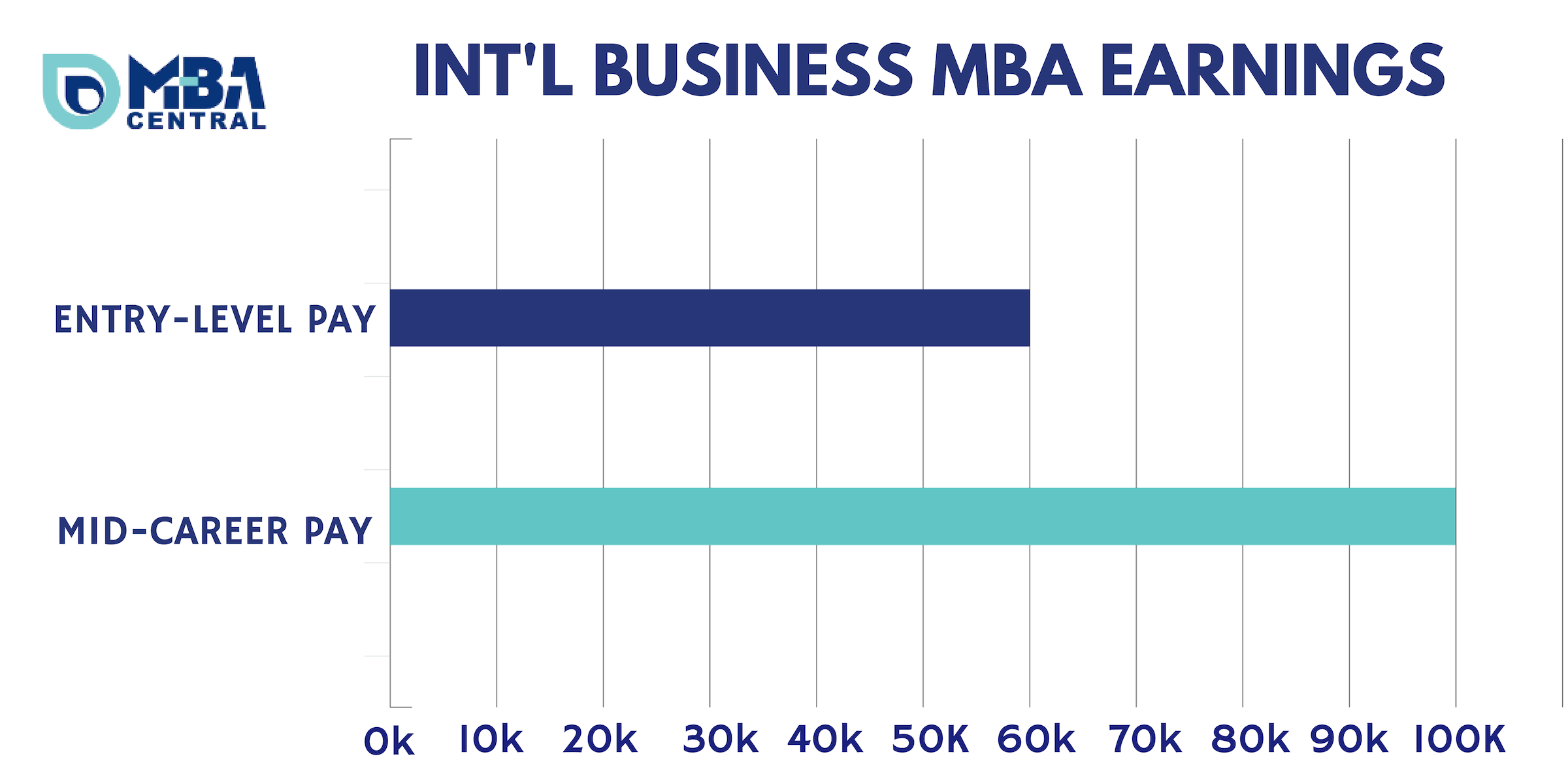
Most organizations of any size have multinational aspects. Whether that may be supply chain agreements with corporations in other nations, or the sales of products across borders, or compliance standards required across borders, managers with knowledge of international business are indispensable.
While International Business MBAs start their online MBA with the same general courses required of all MBA concentrations within their school, they soon specialize in international business through 3-6 concentration courses. These courses often include the following:
- Change Management
- Business Management
- Compliance around the World
- International arbitration
- Global Taxation
Common business roles inhabited by international business mbas include:
- Management Consultant
- International Compliance Manager
- International Sales Manager
- International Marketing Manager
- Chief Executive Officer
Think you might be interested in an international business MBA? Be sure to check out our ranking of the Best Online International Management MBAs today!
Online Consulting MBAs

Sometimes a fresh set of eyes helps. This is certainly the case with many of the thorniest business problems. Consultants work by analyzing tricky business or organizational problems in organizations other than their own. After information gathering and thorough analysis, consultants present suggestions on how business can optimize their existing operations.
Consultants are some of the best and brightest managerial and financial thinkers. In online consulting MBA programs, students begin by taking general courses about a wide variety of business topics. They then proceed to specialize in consulting by taking 3-6 courses that are often in the following disciplines:
- Business Strategy
- Marketing Strategy
- Consulting
- Corporate Strategy
- Global Supply Chain Management
- Information for Decision Making
- Innovation Management
- Negotiations
- Relationship Selling Strategies
While many consultants operate under the job title of consultant (surprise, surprise!), consultants can work in a variety of settings. A few settings in which consultants work are listed below:
- Governmental Organizations
- Large private consulting firms
- Special oversight divisions of corporations
- As individual consultants
- Educational settings
Online Non-Profit MBAs
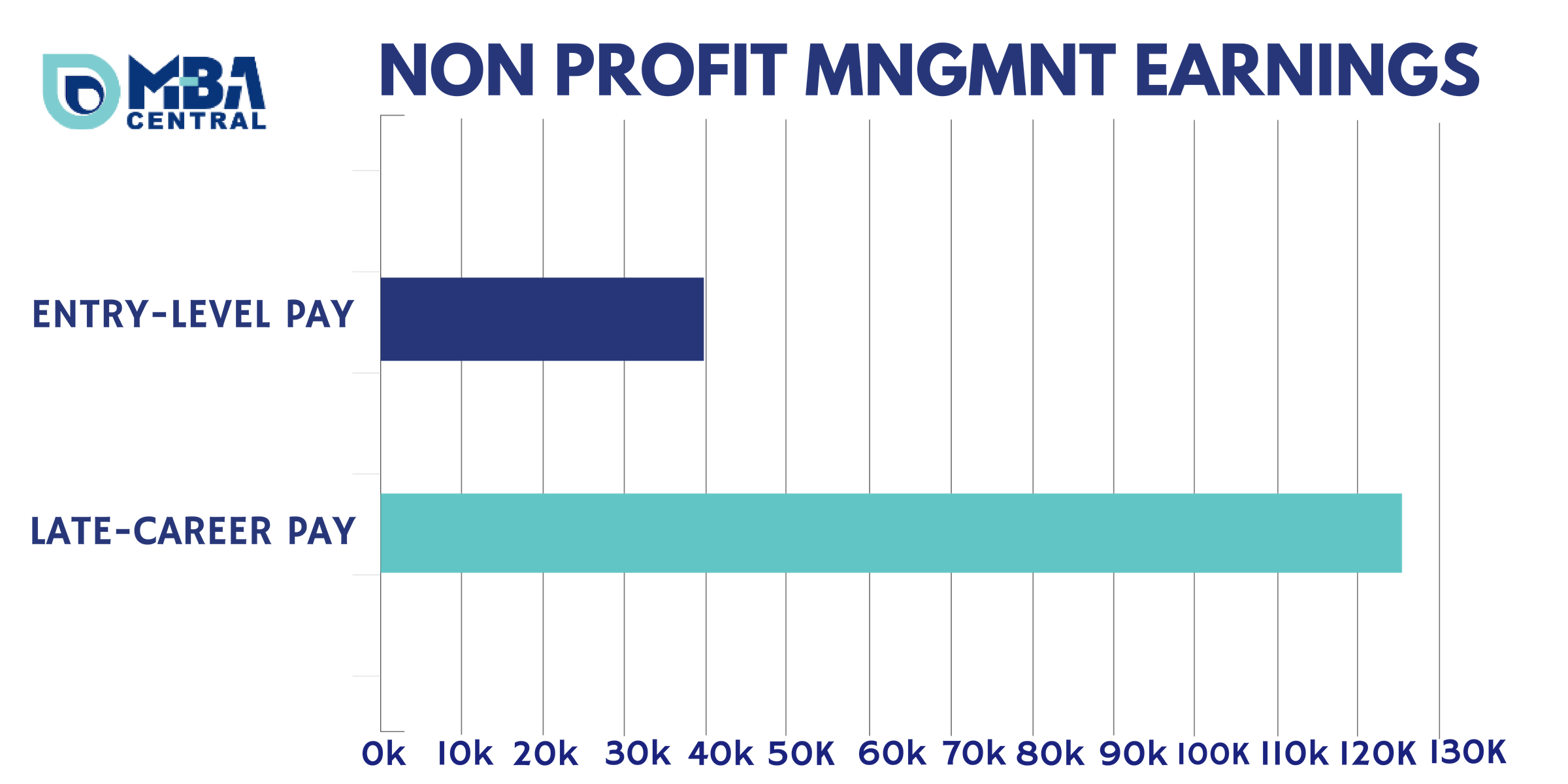
Management isn’t all about making money. Skilled managers are needed in any setting where organizational goals are complex and challenging enough to require coordination of many parties. Many such organizations are non-profits, or corporations with a strong focus on social good.
A unique skillset is needed for the non-profit world. While many enjoy tax-exempt status, fundraising takes on a different form, and partnerships take on a whole new meaning.
For those looking to excel in the management or creation of non-profits, many online MBA programs offer specializations. These courses of study start with a general complement of well-rounded business courses, with students finishing their course of study with 3-6 concentration courses related to non-profit management. These concentration courses often include the following:
- Leadership
- Strategic Planning
- Fundraising
- Law for Non-Profits
- Financial Management
Though there are many roles once with a non-profit MBA could pursue (including in the for-profit world), some of the most common jobs non-profit MBAs gain include the following:
- Executive Director
- Fundraising Manager
- Director of Development
- Program Coordinator
Think you might be interested in pursuing a non-profit MBA? Check out our ranking of the Best Online Non-Profit Management MBAs today!
Online Supply Chain Management and Operations MBAs
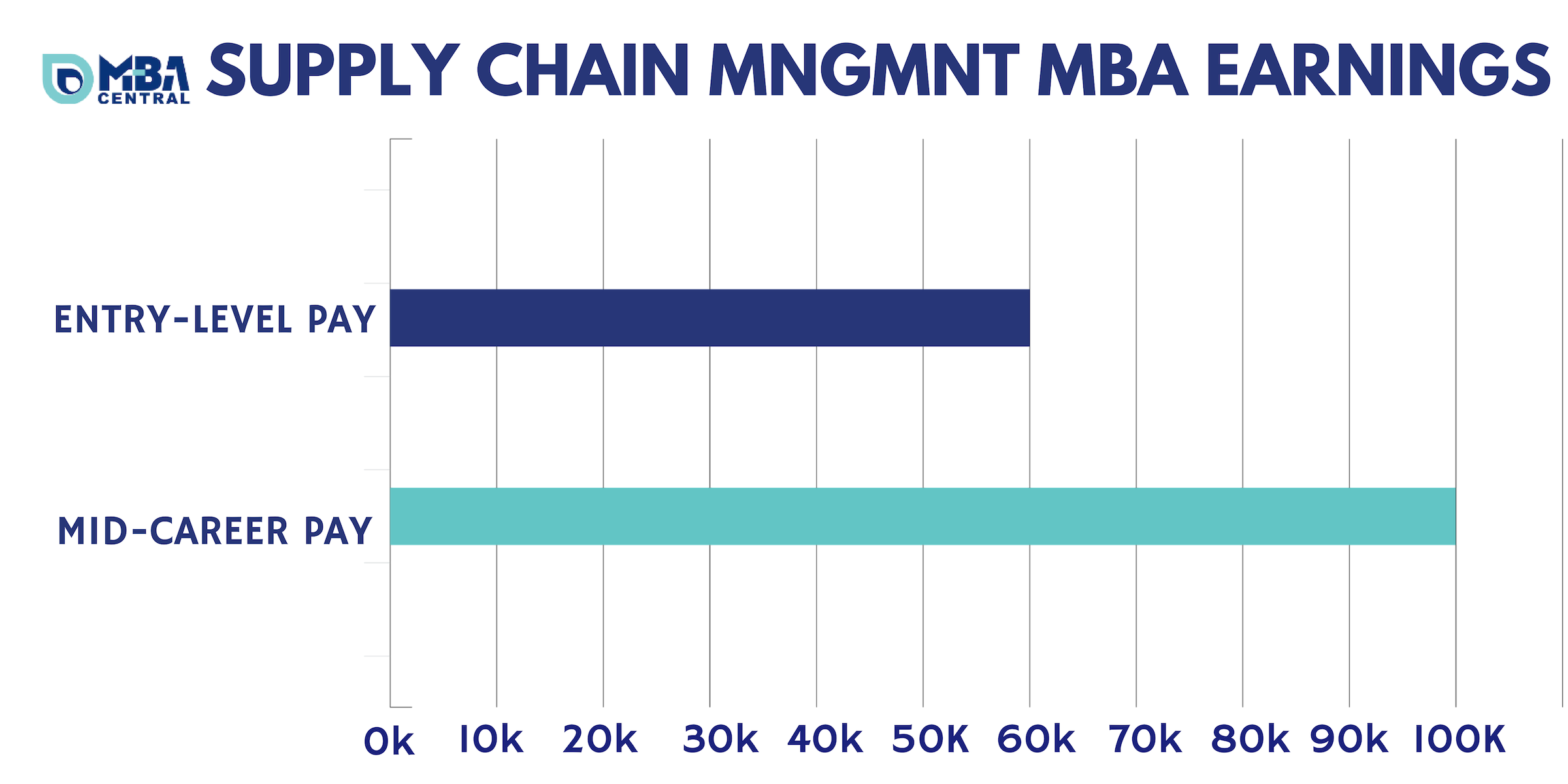
Supply chain management, logistics, or operations MBAs are some of the most popular MBA options across a number of industries. While other MBA types may work in banking, finance, accounting, or new product development, operations MBAs are concerned with the day-to-day operations of a running business. This multidisciplinary skill set can involve dealing with human resources, dealing with supply chain issues, and honing productivity in factory settings.
While operations management jobs may differ depending upon the industry you end up working in, operations concentrations try to prepare you for a wide variety of scenarios. After a group of general MBA courses that give degree candidates a general understanding of a number of business topics, operations MBAs take 3-6 concentration courses. These courses often include the following:
- Strategic Planning
- Human Resources
- Supply Chain Analysis
- Budget Management
- Process Improvement
Operations jobs can go by many names “in the wild.” Some of the most commonly held positions by operations MBAs, however, include the following:
- Operations Managemer
- Logistics Manager
- Supply Chain Manager
- Strategist
- Procurement Operations Manager
Think you might be interested in a supply chain management or operations MBA? Check out our ranking of the Best Online Supply Chain Management MBAs today!
General Online MBA Rankings
Best Online MBAs
50 Easiest Online MBA Programs
Fastest Online MBA Degrees
Best No-GMAT Online MBA Programs
Online MBA Specialization Rankings
Best Online Business Analytics MBA Degrees
Best Online Forensic Accounting MBA
Best Online Cybersecurity MBA
Best Online Law Security MBA
Best Online Economics MBA
Best Online Communications MBA
Best Online Public Administration MBA
Best Online Sports Management MBA
Best Online Executive MBAs
Best Online Information Technology MBAs
Best Online Human Resources MBAs
Best Online Social Media MBAs
Best Online Sustainability MBAs
Best Online Supply Chain Management MBAs
Best Online Entrepreneurship MBAs
Best Online Finance MBAs
Best Online International Management MBAs
Best Online Non-Profit Management MBAs